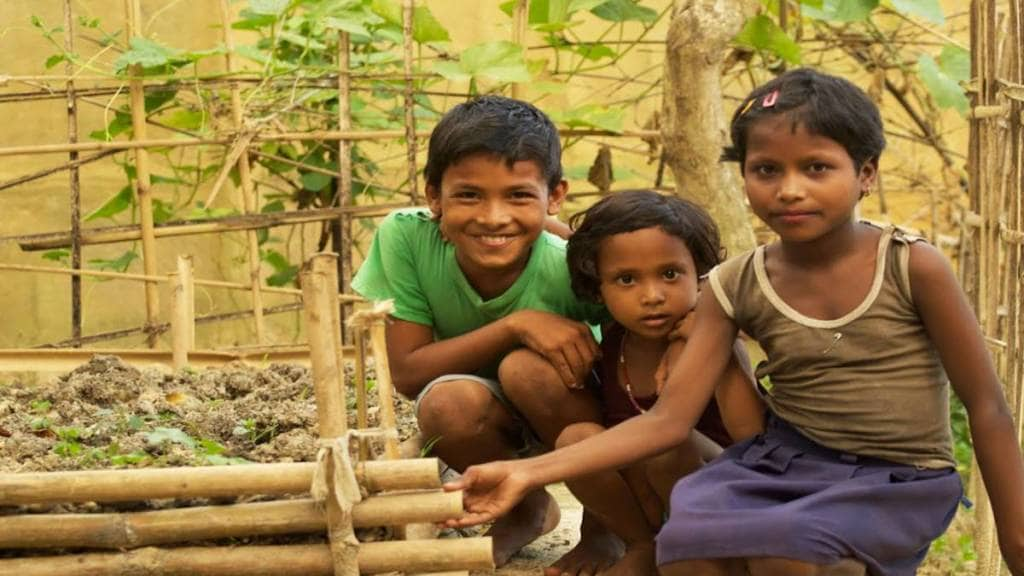The National Education Policy 2020 introduced a big change in schools – it proposed breakfast for children in addition to the midday meal, and said that if hot food isn’t available, a mix of groundnuts or chickpeas with jaggery and local fruits may be provided.
The NEP 2020 has also focused on integrating nutrition education into school curriculum. Prior to this, nutrition education was directly delivered via subjects like home science and health, and indirectly by the Mid-Day Meal Scheme (started in 1995), Anganwadi Centres, the National Nutrition Mission (launched in 2018), and public health campaigns.
“The NEP 2020 recognises that nutrition is of paramount importance,” Archana Sinha, CEO & co-founder of Nourishing Schools Foundation, told FE. “Research shows that malnutrition in children impairs their ability to learn, retrieve, and adapt to new information – and nutrition education can help prevent malnutrition.”
Nourishing Schools Foundation has developed a nutrition toolkit for young changemakers aged 9-14 years – comprising of games, activities, and practical experiences like school gardening – and Sinha, with whom we talked during the National Nutrition Week (September 1-7), said that these changemakers can positively impact millions of schoolchildren.
India celebrates the National Nutrition Week early September. What difference do such ‘weeks’ make?
It raises awareness about nutrition, during which some workplaces, colleges, and schools display posters about adopting a healthier diet and other ways to prevent malnutrition. While a week dedicated to nutrition brings temporary focus, the real difference is made when the awareness generated is transformed into sustained educational efforts. I believe there is an untapped opportunity to use National Nutrition Week to emphasise the importance of nutrition education – which isn’t merely about knowing what to eat, but also about understanding the impact that food choices have on personal health, community resilience, and the broader socioeconomic landscape.
Was there relatively little focus on nutrition prior to the NEP 2020?
The NEP 2020 states that basic training in health, including preventive health, mental health, good nutrition, personal and public hygiene, will be included in the curriculum. It proposes trained social workers, counsellors, and community involvement into the schooling system to address the health and nutrition of students.
Prior to the NEP 2020, nutrition received fragmented attention, limited to the provisioning of meals rather than a comprehensive approach encompassing education, behaviour change, and community engagement. While earlier education policies, such as the Mid-day Meal Scheme, have aimed to address child nutrition to some extent, the NEP 2020 marks a significant shift by recognising the role of nutrition education as a foundational element of learning.
What’s the toolkit you’ve developed for schoolchildren?
Through our Nourishing Schools programme for government schools and our Change Catalyst programme for private schools, we provide schoolchildren with the knowledge and skills needed to understand the importance of nutrition, hygiene, and environmental stewardship.
Our toolkit includes a box of games and activities (physical box and an online version), including making your own soap, building a handwashing station, growing your own nutritional garden, etc. This toolkit empowers students to make informed decisions and positively influence peers, families, and communities.
While we are not directly involved in distribution of food in schools, we play an advisory role in advocating for nutritious, diverse, and culturally-appropriate school meals. We also encourage schoolchildren to set up school gardens, the produce from which is used to prepare midday meals (aligned with guidelines from the Ministry of Education regarding school nutrition gardens).
How many students have you impacted?
We have reached over 330 schools in five states, impacting over 95,000 children. We start with a baseline survey to measure health/nutritional status of adolescents in schools from 4th to 9th grades. Results from the survey are presented to teachers, schoolchildren, and parents. We then provide them with resources through our toolkit to help them take action to tackle malnutrition. The implementation of the toolkit creates awareness about health, nutrition, a healthy diet, water, sanitation, and hygiene (WASH) using action-oriented games and activities.
We have seen schoolchildren adopting healthier behaviours, and taking lessons back to their homes (such as the skills acquired in setting up a school garden to set up a home garden that helps their families access nutritious foods).
We are focused on scaling our impact to reach 1 million children across India. This will involve expanding our partnerships with government bodies, schools, and other stakeholders to integrate our programmes into more educational settings. Our ultimate vision is to create a sustainable movement where every child has the knowledge, resources, and confidence to lead a healthy life, and inspire their communities to do the same.

